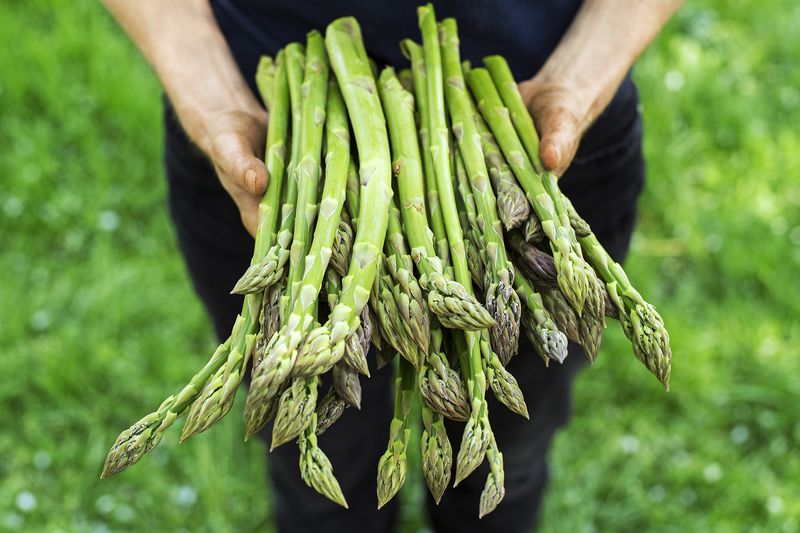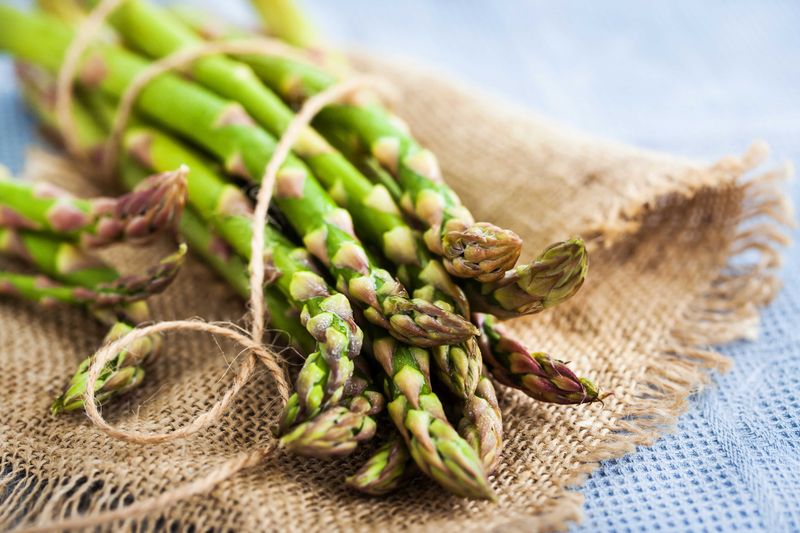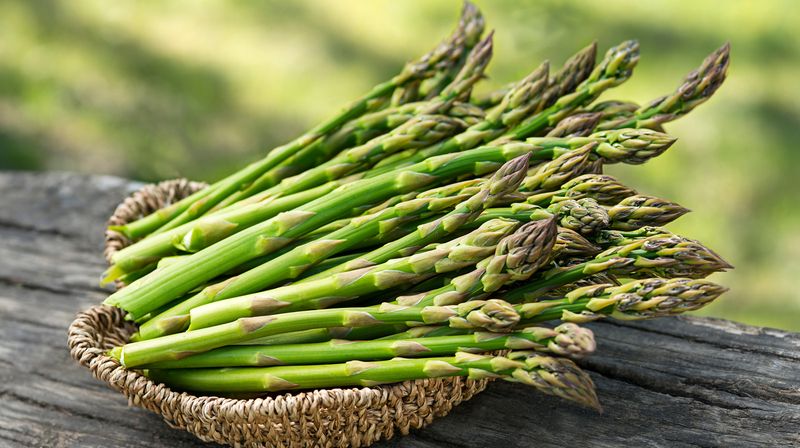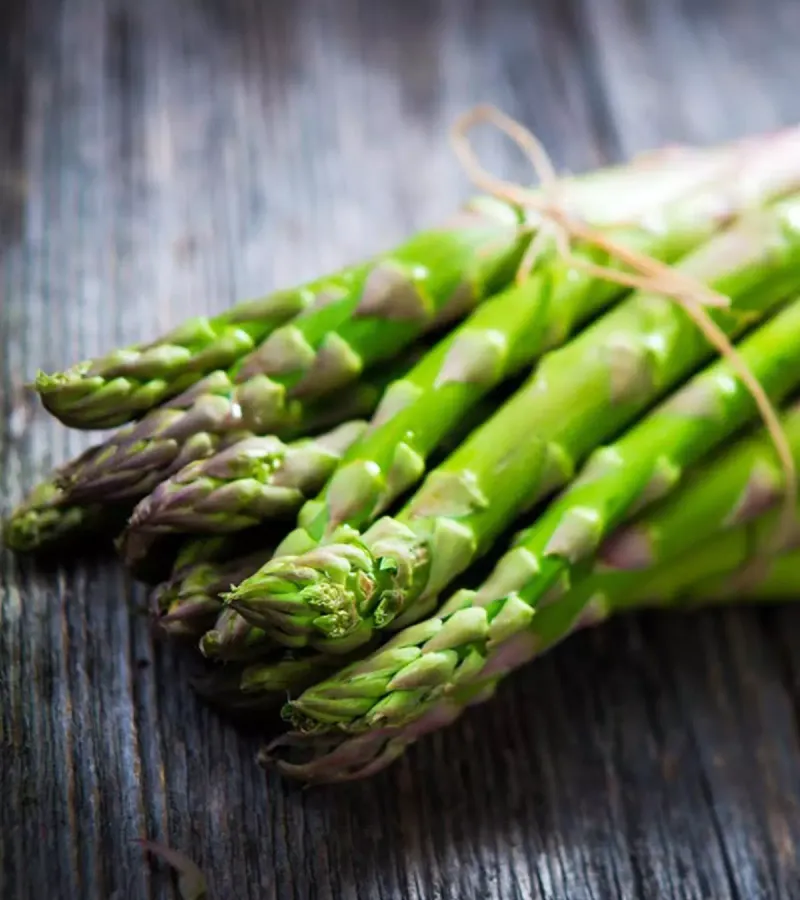Asparagus isn’t just a springtime side dish—it’s a green spear of goodness with far more to offer than most people realize. Beyond its tender snap and grassy flavor, this veggie brings a surprising punch of health perks.
Whether you roast it, steam it, or grill it to a perfect char, it’s worth knowing what else it can do. From your gut to your garden, asparagus is full of smart surprises.
1. Rich In Antioxidants

Bright spears hold a powerful mix of antioxidants like vitamin E, glutathione, and polyphenols. These help protect your cells from damage caused by stress, pollution, or poor diets.
Eating it regularly can support your body’s natural defense systems. It’s a small vegetable with mighty protective power.
2. Supports Healthy Digestion

Asparagus naturally contains inulin, a special fiber that feeds the good bacteria in your gut. That means better digestion, smoother trips to the bathroom, and a happier belly overall.
Its gentle crunch and prebiotic content make it ideal for keeping things balanced from the inside out.
3. Packed With Fiber

Each stalk delivers a healthy dose of dietary fiber, both soluble and insoluble. That’s a win for heart health and for keeping blood sugar steady.
It fills you up without weighing you down. Plus, the tender texture makes it easy to love even for picky eaters.
4. Helps Regulate Blood Pressure

Asparagus contains potassium, which helps relax blood vessel walls and supports steady blood pressure. Unlike salty snacks, this veggie works behind the scenes to keep things flowing smoothly.
Toss it in olive oil and lemon for a light dish that’s as kind to your heart as it is to your taste buds.
5. Promotes Healthy Skin

High levels of vitamins A and C give asparagus skin-loving benefits. These vitamins help boost collagen, which keeps your skin smooth, firm, and ready to glow.
Eating more asparagus may not replace your skincare routine, but it adds beauty from the inside out.
6. Supports Bone Health

Loaded with vitamin K, asparagus plays an important role in keeping bones strong and stable. This vitamin helps your body absorb calcium and form proteins for bone strength.
It’s a quiet helper that supports your frame as you grow, move, and age.
7. Low In Calories But High In Nutrients

Despite being light on calories, asparagus offers iron, folate, fiber, and vitamins packed into every spear. It’s ideal for those looking to eat healthier without sacrificing flavor.
When sautéed or grilled with garlic, it turns simple ingredients into something elegant and satisfying.
8. A Natural Diuretic

Asparagus increases urine production, helping your body flush out excess salt and fluids. That’s helpful for bloating, especially after salty meals or during certain times of the month.
Its diuretic effects come naturally, making it a smart pick for gently supporting your kidneys.
9. Great Source Of Folate

Folate is key for cell repair and DNA formation, and asparagus delivers plenty of it. This is especially important for pregnant women or those trying to support brain health.
Even in just a few spears, the folate levels are impressive. It’s a green ally in many life stages.
10. Helps With Detoxification

Asparagus contains glutathione, a compound that helps your liver process toxins and break them down. It plays a behind-the-scenes role in helping your body stay clean.
With every bite, you’re giving your detox pathways a little boost—no juice cleanse needed.
11. May Boost Mood And Reduce Stress

Thanks to its folate and vitamin B content, asparagus helps regulate mood and supports the production of feel-good chemicals in the brain. It can be a comfort food without the guilt.
Warm and earthy in flavor, it’s great for when you need a meal that feels grounding.
12. Can Support A Healthy Pregnancy

Folate isn’t just good for grown-ups—it’s vital during pregnancy to help prevent birth defects. Asparagus is an easy way to sneak in that daily nutrient.
It’s soft enough for sensitive stomachs and gentle enough to blend into many meals.
13. May Help Fight Inflammation

Natural compounds in asparagus, including flavonoids, may help reduce inflammation over time. That makes it a smart addition to diets focused on joint or heart health.
Eating it regularly is a flavorful way to stay ahead of long-term health issues.
14. Grows Easily In Home Gardens

Once planted, asparagus returns every spring for decades. It doesn’t need much maintenance, just patience and sunshine.
For home cooks and gardeners, few plants are as rewarding. Fresh from the dirt, it tastes even sweeter and more tender than anything from the store.
15. Adds A Pop Of Green To Any Plate

Visually, asparagus brings a bold, bright contrast to beige foods like pasta, rice, or roasted meats. It instantly makes meals feel fresher and more vibrant.
That simple splash of color also signals a dose of nutrition. Sometimes beauty on the plate really does mean goodness inside.

